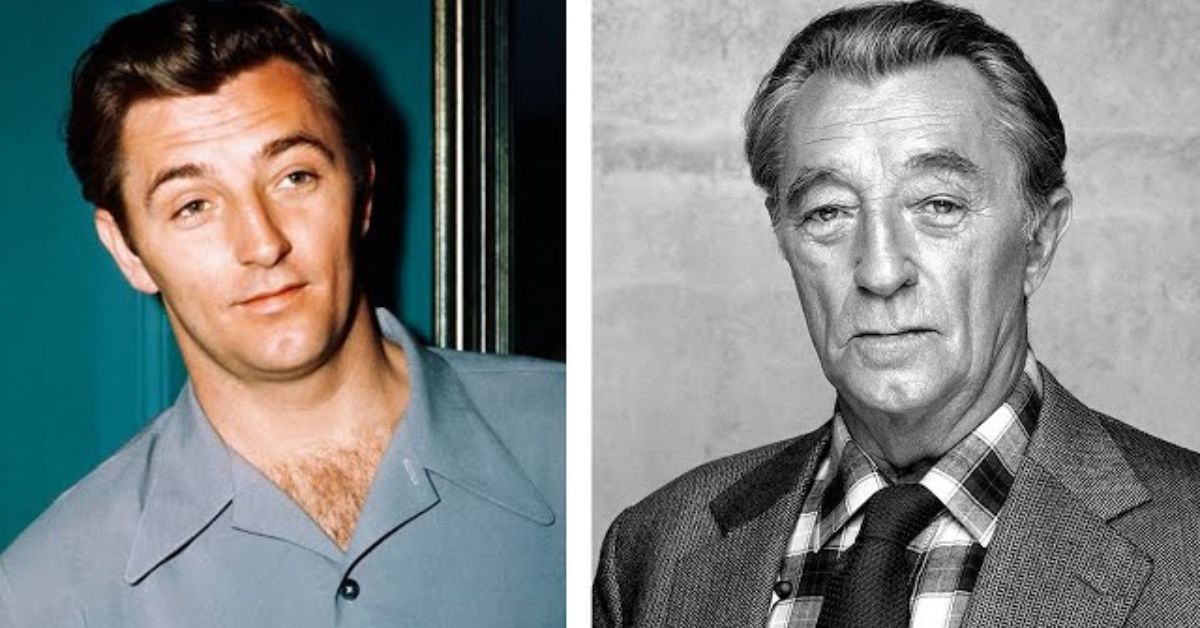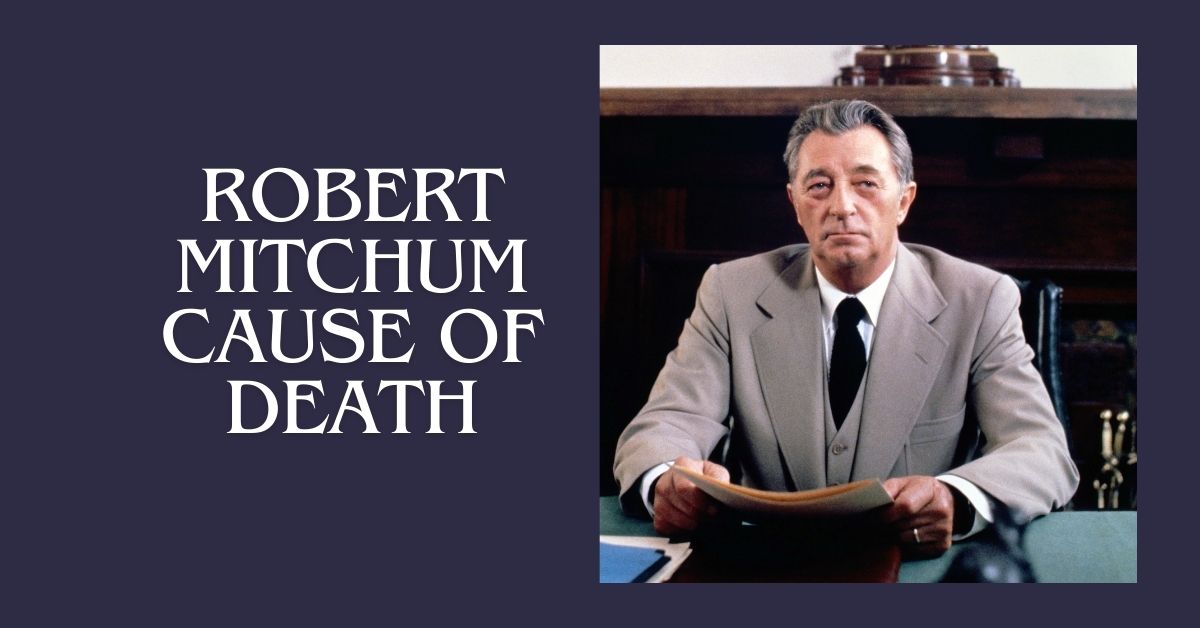In the history of Hollywood, Robert Mitchum stands out as an iconic figure, a cinematic maverick whose gruff power and carefree manner left an indelible stamp on over 100 films. However, on July 1, 1997, the world said goodbye to this renowned actor, who died quietly in his sleep at his home in Santa Barbara, California. Mitchum’s heavy-lidded eyes, which had formerly looked at the world with cynical amusement, closed for the final time at the age of 79.
Robert Mitchum Cause of Death: Emphysema And Lung Cancer
As the curtain lowered on Mitchum’s life, the awful reality of his health became apparent. After suffering from emphysema for more than a year, he was diagnosed with lung cancer in the spring of 1997. The actor who once said, ”It sure beats working,” faced the ultimate hurdle.
Robert Mitchum Biography
Robert Charles Mitchum was born on August 6, 1917, in Bridgeport, Connecticut, to James Mitchum, an Irish railroad worker, and Anne Mitchum, a Norwegian ship captain’s daughter. Robert’s mother became a Linotype operator to support her three children when his father was killed in a switching accident when Robert was two years old.
At the age of 14, Robert dropped out of school and began traveling the nation by freight train while working as a laborer, coal miner, boxer, and airplane assembler. His encounters with the police left him with a permanent dislike for authority.
He married his high school sweetheart, Dorothy Spence, in 1940 and spent much of their time in Southern California, staying away from the social scene in Hollywood. His spouse, who resides in Montecito, California, leaves behind two sons, James and Christopher, who are both from Paradise Valley, Arizona; a daughter, Petrine, who hails from Burbank, California; a brother, John, who resides in Sonora, California; and two sisters, Julie Mitchum from Sonora and Carol Allen from Hendersonville, Tennessee.
If you want to learn about the causes of death of other celebs, check out the articles below:
- Radcliffe Bailey Cause of Death: How Did the Artist Die at 54?
- Melanie Safka Cause of Death: What Do We Know?
Robert Mitchum Career: A Cinematic Chameleon
The film “The Story of G.I. Joe,” which followed a dedicated army officer covering Ernie Pyle’s wartime reporting, was his first significant part and earned him a nomination for the 1945 Academy Award for Best Supporting Actor. Other notable roles were a tired rodeo performer in “The Lusty Men” (1952), a sympathetic hunter in “Rachel and the Stranger” (1948), and a cynical private investigator in “Out of the Past” (1947).
Mr. Mitchum represented evil in Charles Laughton’s 1955 film “The Night of the Hunter” as a crazy evangelist and terrible killer with the words “Love” and “Hate” tattooed on his hands. He played an earthy Australian sheep drover in “The Sundowners” (1960), a valiant marine facing Deborah Kerr’s nun in “Heaven Knows, Mr. Allison” (1957), and a vicious murderer in “Cape Fear” (1962).
Mr. Mitchum played the noble private eye Philip Marlowe, played by Raymond Chandler in films such as “The Friends of Eddie Coyle” (1973), “Farewell, My Lovely” (1975), and “The Big Sleep” (1978). He also played a significant role in the somber, cynical film noir revival of the 1970s.

”Pursued” (1947), ”Crossfire” (1947), ”Blood on the Moon” (1948), ”Angel Face” (1953), ”Track of the Cat” (1954), ”River of No Return” (1954, starring Marilyn Monroe), ”Home From the Hill” (1960), ”El Dorado” (1967), ”Secret Ceremony” (1968), ”Ryan’s Daughter” (1970), ‘That Championship Season” (1982) and ”Mr. North” (1988).
He portrayed Victor (Pug) Henry on television, the main character in the eighteen-hour 1983 miniseries “The Winds of War,” which was based on Herman Wouk’s novel. He also starred in the 1988 follow-up “War and Remembrance.”
The actor had “reached that point in his career where he doesn’t seem to act as much as inhabit whatever film he’s in, whatever role he’s playing, whether it’s an Irish schoolmaster, an Australian sheepherder, or, as here, a nice, well-meaning garage mechanic with a talent for bowling,” according to Vincent Canby of The New York Times, who reviewed Mr. Mitchum’s 1971 film “Going Home.”
Even when he first developed a stern, jaded exterior early in his career, Mitchum had already established his persona. Narratives of his uprooted childhood, adventurous adolescence, colorful early occupations, brief incarceration for vagrancy at age 16 in Georgia (when he was placed on a chain gang), and two-month incarceration at age 31 in the California marijuana case all served to pique the curiosity of the audiences.
If you want to learn about the causes of death of other celebs, check out the articles below:
- Dex Carvey Cause of Death: What Led to This Tragedy?
- Alum Gary Graham Cause of Death: Unveiling the Factors Behind His Demise!
Conclusion
Robert Mitchum, the man who famously compared incarceration to Palm Springs minus the proletariat, has made an indelible mark on Hollywood history. His unique attitude to life and film, characterized by rebelliousness and sincerity, cemented his reputation as a cinematic legend. As we relive his films and reflect on his turbulent career, Mitchum’s cinematic legacy continues to enchant audiences, demonstrating that his contributions to the silver screen are ageless.
